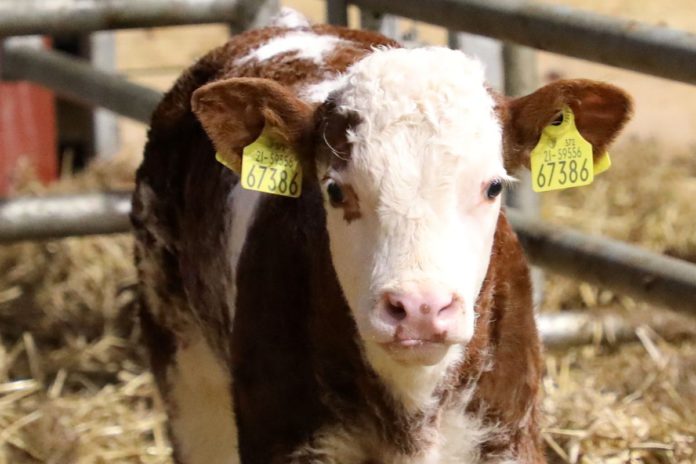A cost-benefit analysis must show why Ireland will move to introduce mandatory bovine EID tagging next year.
That is the view of the Irish Beef & Lamb Association – IBLA – which has called for a debate on the matter in a “transparent” open committee style forum.
The DAFM will implement Bovine EID in two stages:
- From January 1st, 2022: All approved bovine tag suppliers will be required to supply an EID tag with all new tag orders. Each new tag set will include one EID tag and one tissue tag. EID tags will be white in colour. The colour of conventional and tissue tags will remain yellow.
- Also, from July 1st, 2022, it shall be a legal requirement for herd keepers to officially identify all newborn calves with a tag set containing an EID tag.
Mandatory bovine EID tagging
The IBLA said it has “held back comment” on the introduction of mandatory electronic identification in cattle herds “until now”.
In a statement to That’s Farming, a spokesperson said:
“All we observed was the usual posturing and spin, alluding to certain adopting of positions.”
“We would ask why has this come forward? Who in the industry requested it? Have the new white tags been trialled and tested to the same standards as the two yellow tags?”
“What cost-benefit analysis has been completed on this ‘Irish only’ change and approach to tagging? It is not required anywhere in Europe, nor by any of the markets Ireland sells beef into.”
“Those who have called for this change and will benefit most by its implementation must pay for these. changes.”
They said primary producers and family farms utilise the current model “excellently”.
“We talk about sustainability and viability and increased costs to the sector. Well for once, this cost must be borne by those requesting it.“
Who should pay?
IBLA proposes that the cost is recovered by those who benefit most from it. It pointed to livestock marts, food business operations and the DAFM.
“This can be done through the levies applied at points of sale or slaughter for each animal progressing through these facilities.”
“Those who benefit are required to pay tag suppliers the increased costs of the tags. This would ensure that no farmer will have to incur an increased charge for what they pay for these electronic tags.”
The farm group said it would welcome the opportunity, where all observations, comments and questions would be dealt, so farmers could see the debate on this topic.
“Making a once-off payment for the first year’s supply of EID tags simply will not do for primary producers.”
The group added that those involved in making this decision must find a cost-neutral way to have it implemented by the farmers, who tag calves after birth.





